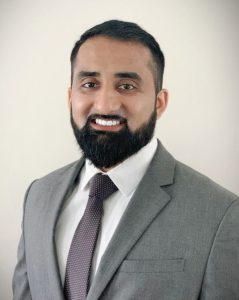Until last week, Muhammad Qureshi’s dream of becoming a practising American doctor was on track.
An American international medical graduate (IMG), the Pakistan-born, Northern Virginia-raised 31-year-old studied at the Saint James School of Medicine, in St Vincent.
Though running against long-standing concerns with the relaxed standards of the Carribean’s for-profit med school system, Qureshi was confident his residency preparation would see him gain a first-year match in 2021.
He had achieved solid scores in his United States Medical Licensure Examinations, had extensive U.S. clinical rotation experience, and felt his three match interviews—all of which all took place over Zoom—went positively.
[When] I woke up [last] Monday to an email that said you didn’t match, it was very upsetting. It was shocking as well – I was expecting to match.
Yet by the time Match Day itself rolled around, Qureshi was one of more than 4000 who applied for an American medical residency spot in 2021, but missed out. Despite one in every four practising U.S. physicians being immigrants, those who studied internationally were statistically far more likely to count amongst that number.
Bound by a rising tide of applicants that squeezed ratios across the board, a long out-dated federal funding cap that essentially limits residency slots, and a powerful centralized algorithm that penalizes those who don’t match first time up, Qureshi’s job only gets harder from here.
With a nationwide physician shortage of up to 139,000 possible by 2033, the heartbreak of not matching carries an extra sting in the knowledge that—as each year passes—a far larger problem approaches, too.
“Technically speaking, if you have the scores, if you have the letters of recommendation, if your interviews went well—which I feel like they did—you’re supposed to match,” Qureshi says.
“All of that happened for me. [When] I woke up [last] Monday to an email that said you didn’t match, it was very upsetting. It was shocking as well – I was expecting to match.”
The raw numbers
Initial National Resident Match Program (NRMP) data shows that a record-high 42,508 applicants took part in the residency match process in 2021; a six percent increase from the year before. An eye-catching 15 percent increase in IMGs submitting preference lists largely drove the leap.
Of the 38,106 total residency spots available, 36,179 were filled this year. Though the full set of data is yet to be released, initially unmatched positions offered through the Supplemental Offer and Acceptance Program (SOAP) as well as second-year residency spots, will see virtually all remaining slots filled. In 2020, 99 percent of all available residencies were filled, post-SOAP.

92.8 percent of the 19,866 U.S.-educated MD seniors attempting to match did, along with 89.1 percent of the 7,101 American-educated DO seniors involved.
Successful match ratios were much lower for those who studied internationally. Of the 5,925 American IMGs who submitted residency preference lists, 59.5 percent matched. Amongst the 7,943 non-American IMGs who filled them in (over 1000 more than the year before), just 54.8 percent scored an initial residency position.
Representing the worst initial match rate for non-American IMGs since 2017, the figure is also 6.3 percent lower than last year, and much larger than the fractional declines that other hopeful resident categories—including Qureshi’s—saw in 2021.
The NRMP pointed to the “unavailability of medical examinations during the early stages of the pandemic”, along with “permanent changes to the scoring and administration of those examinations” for the non-American IMG fall in numbers.
Though a 1997 law limiting federal funding on graduate medical education ultimately provides the biggest barrier for generating more future doctors, the NRMP’s 2021 assessment isn’t wrong.
Last February, the USMLE Step 1 exam changed from a scored assessment to pass/fail, before the Step 2 Clinical Skills (CS) exam was finally canned last month.
IMGs have long valued USMLE scores as a way to prove their knowledge to American program directors. A 2018 NRMP survey backs this view up, showing that Step 1 and Step 2 scores, along with letters of recommendation and Medical Student Performance Evaluations (MSPEs), were the most important indicators when handing out interview invitations.
Zoom interviews, and visa worries
Of all the Covid-enforced changes the residency process has seen over the last year, the switch to fully virtual residency interviews was surely the largest. Some program directors have indicated that, post-pandemic, they won’t switch back.
The same NRMP study showed that personal touches, like general interactions with faculty and house staff during a hospital visit, and feedback from current residents on the applicant, weighed more heavily in terms of hospital rank lists, post-interview.
Qureshi, who moved to Virginia from Pakistan when he was three, believes that Zoomified interviews “definitely” hurt his chances. A victim of ‘Application Fever’ himself, he estimates he applied to “between 140 and 150.” The typical IMG applies to around 140, more than twice the average for American-educated seniors and graduates.
This is where I realized the system was really messed up – people were getting suicidal.
Additional visa worries sprouted up for non-American IMGs last year too, even after they received initial certification from the Educational Commission for Foreign Medical Graduates (ECFMG). Under President Donald Trump, the Department of Homeland Security (DHS) last year proposed to shorten the length of the J-1 visa, which virtually every foreign doctor must hold to gain residency.
Along with a bipartisan congressional coalition, most major medical organizations urged the DHS to reconsider their plan. The DHS didn’t push it any further.
Though enjoying how much matching is celebrated and valued with in the U.S. medical community, Elif Yakut, a Turkish medical graduate, says she felt “fatigued” by the overall length of finding a residency as a non-American IMG.
“It is a long process – and I believe I feel fatigued,” Yakut, who matched into pathology at SUNY Downstate Health Sciences University in New York last week, says.
Unpassed bills, and heartbreaking Reddit stories
Though bigger structural changes to the residency system are unlikely in the foreseeable future, the Covid-19 pandemic forced American lawmakers to consider the potential impact of more foreign doctors.
Last May, ex-Sen. David Purdue, a Republican from Georgia, introduced the Healthcare Workforce Resilience Act that sought to make 15,000 additional visas available for non-American physicians, to help combat the pandemic.
Co-sponsored by 39 other senators of both parties, the bill floundered in committee and is likely to be forgotten. Two other bills that proposed to increase Medicare-supported residency slots by up to 3000 over five years have also stalled, though a bill voted on late last year did increase spots in rural areas and underserved communities.
Sen. Dick Durbin, a Democrat from Illinois, has gone in the other direction. Though none have passed, Durbin has introduced several pieces of legislation that would strip Caribbean med schools of federal funding for student loans.

Lower entry standards, more expensive tuition, and higher drop out rates have long been the knocks on Caribbean schools, whom critics say don’t prepare students well enough for residency matching in the U.S.
Qureshi is happy to share positive stories and experiences in St. Vincent, along with his time in three clinical rotations in Chicago, as well as his Step 1 and 2 scores (235 and 230). Both are considered dependable for his preferred residency; internal medicine.
Qureshi says the only things he’d do differently would be to volunteer more, and potentially publish one or two additional research papers. He doubts whether it would have moved the needle for him, though.
“It might have helped, but with this whole Covid mess, and the way things worked out this year, I don’t know if that kind of stuff would have really made a difference,” he says.
After failing to receive a match confirmation last Monday, Qureshi attempted to ‘SOAP’ into an unfilled spot without luck. He found himself reading a med student message board on Reddit, filled with stories of seniors and grads who failed to match.
“This is where I realized the system was really messed up – people were getting suicidal,” he says. “That’s when I got really upset. People were posting the suicide hotline numbers, [others] were saying ‘I can’t take this anymore.’
“People shouldn’t have to get to that point where they don’t want to live anymore. Some people are trying this for the fourth or fifth time. They had the scores, they had everything, but it wasn’t working out. You have to wait another year to do it all again.”
Onto 2022
By the end of last week, Qureshi admits there was little left in his tank, too. When we spoke on Monday, a sense of disappointment still lingered, but the tide already seemed on the way out.
A close friend of Qureshi’s who missed out last year ‘SOAPed’ into family medicine in 2021, providing him with hope for success next year. The 31-year-old plans to complete his Step 3 Clinical Knowledge exam in 2021, and is already looking into various volunteering and part-time positions in Northern Virginia.
Though he knows the odds for second-time matches are slimmer, it’s a feeling he wants to convey to other unmatched seniors and graduates, especially those who studied internationally.
There’s no ‘ifs’, ‘ands,’ or ‘buts’ about it. We’re going to make it happen next year. We’re strongly holding on to ‘hope.
“Everyone puts in a lot of effort,” Qureshi says. “If you make it to this point, you’ve put in a ton of time, a ton of effort, plenty of years of your life have been dedicated to this whole process.
“You deserve to be upset, but, at the same time, I’ve seen people match out of nowhere. There’s always going to be hope. If you have to write Step Three, write Step Three. If you have to volunteer, volunteer. There’s always going to be a way.
“We’re going to match where we want to next year. There’s no ‘ifs’, ‘ands,’ or ‘buts’ about it. We’re going to make it happen next year. We’re strongly holding on to ‘hope.”



